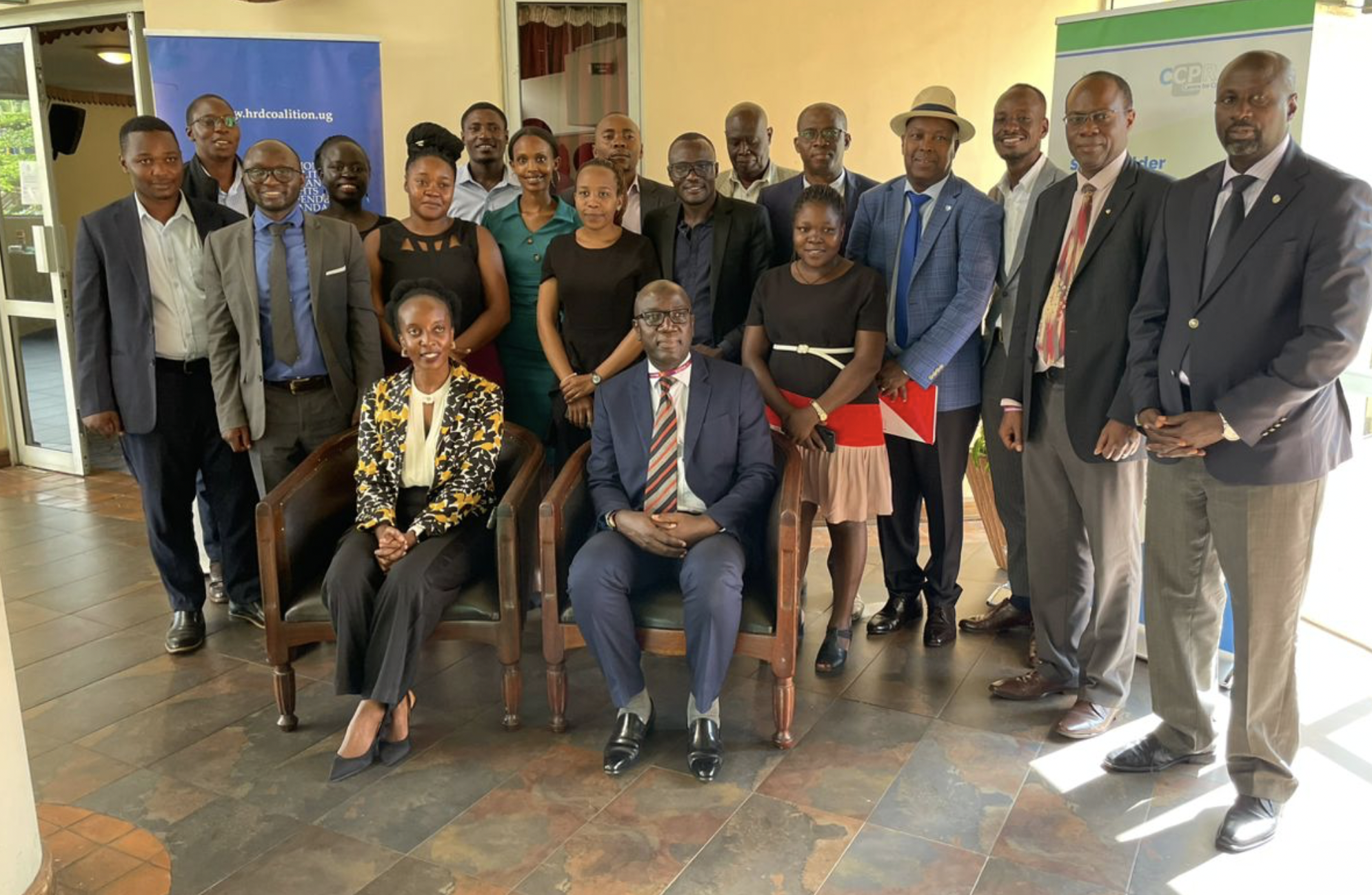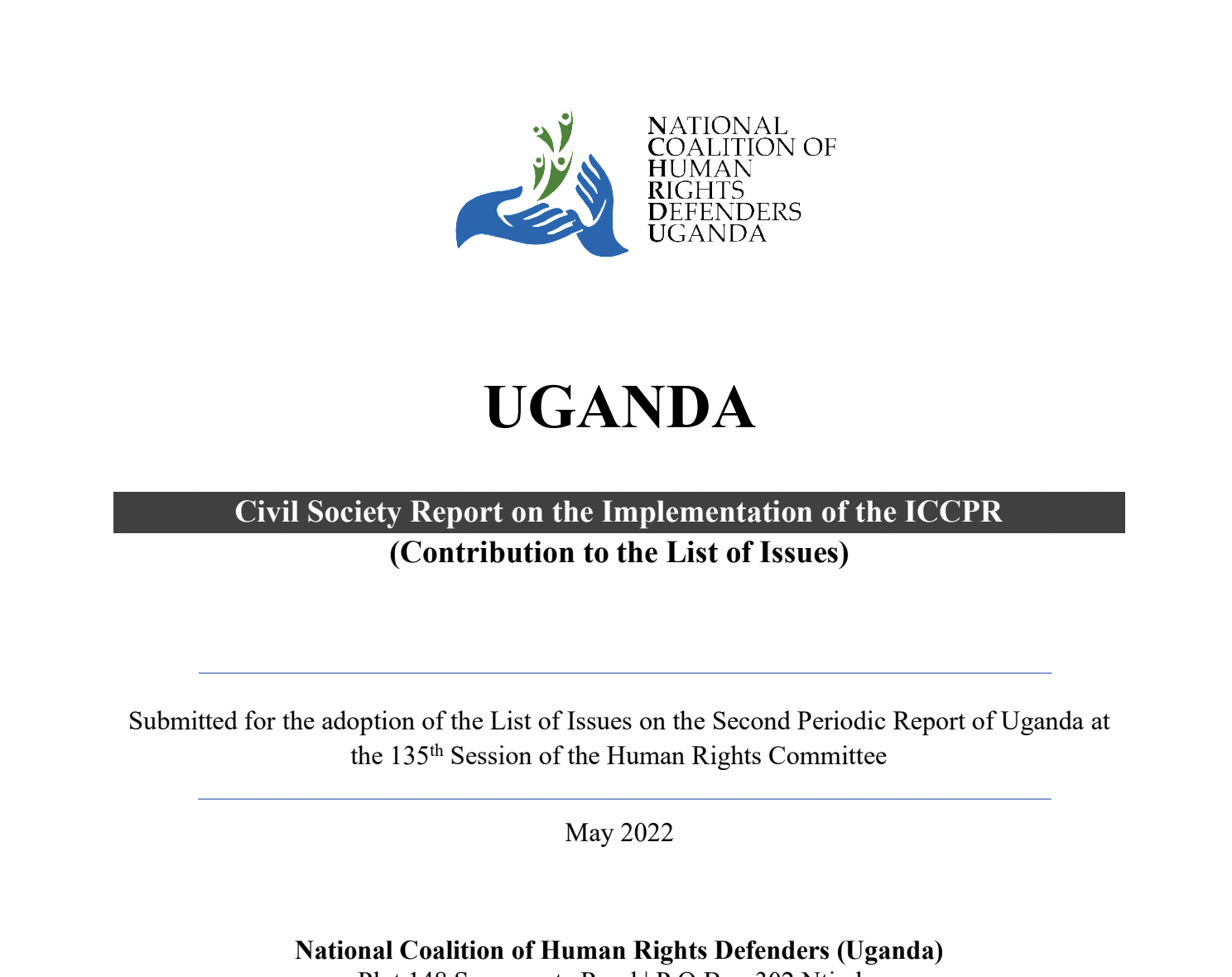Uganda reviewed by the Human Rights Committee for the first time since 2004
Published on 18 Jul 2023, 01:29 PM
Uganda faced scrutiny on several human rights violations including Anti-Homosexuality law and the 2021 elections
.jpg) Demonstration against bill on LGBTI in Uganda (copyright AP)
Demonstration against bill on LGBTI in Uganda (copyright AP)
The 138th Human Rights Committee Session in Geneva recently took place, with Uganda being the focus of discussion on June 27th and 28th. The Committee welcomed measures taken by the Ugandan government to improve respect for human rights but expressed serious concerns about various issues, including the controversial "anti-homosexuality law," police violence and corruption in the judiciary.
Attacks against LGBTQI+ in Uganda discussed at length at the review
Regarding violence against the LGBTQI+ community, the Committee expressed concerns about the criminalization of same-sex consensual relations and the climate of prejudice and violence against the LGBTQI+ community. According to the committee, the new legislation targets the LGBTQI+ community in Uganda and creates an atmosphere of fear including to the CSOs working with those communities. The Committee also expressed concerns on the fact that, due to the adoption of the law, LGBTQI+ communities are, somehow, denied access to social and medical services.
In their responses, the delegation of Uganda pointed out the fact that, the Anti-Homosexuality Law of 2023 is merely a continuation of laws adopted prior to the independence of the country.
The delegation used the same rhetoric held in previous UN forum, arguing that such law was necessary to combat the promotion of homosexuality specifically targeting children. The delegation also argued that it was unfortunate the Committee had received reports that LGBTQI+ community was victims of violence and discriminations, allegations that the delegation rejected.
Excessive use of force and arms traffic in Karamoja
The Committee pointed out excessive use of force in Uganda in particular in some Northern regions. They also expressed concern about reports of extrajudicial killings while disarming cattle rustlers in Karamoja, which resulted in the deaths of 12 people. The Committee asked for several clarifications, including on the investigations and the measures taken to prevent circulation and use of firearms. The delegation did not provide clear figures on the number of cases investigated, simply affirming that officers responsible were sanctioned or imprisoned. They also informed the Committee about campaign of disarmament operations that led to the confiscations of 40’000 arms.
2021 elections not respecting the ICCPR violations under article 25
The Committee also raised several concerns regarding the 2021 elections in Uganda. Members referred to several reports which mentioned human rights violations including enforced disappearances as well as several shortcomings in the elections process, such as the suspension of the internet on the eve of the elections and instance of corruption from some political parties. The delegation rejected the cases of enforced disappearances, confirming that investigations were made by the National Human Rights Commission on this matter. The authorities also considered that the Internet suspension was necessary to prevent violent messages encouraging hate and insurrections.
Watch again the dialogue with the Committee here (part one) and here (part two).
Recommendations of the Human Rights Committee
Concluding Observations on the Uganda's second periodic report were released on 26 July 2023. The State party is requested to provide, by July 2026, information on the implementation of the following recommendations:
Discrimination on grounds of sexual orientation and gender identity
The State party should take appropriate steps to:
- (a) As a matter of urgency, repeal the Anti-Homosexuality Act and Section 145 of the Penal Code Act, to end the criminalisation of consensual sexual relations between adults of the same sex;
- (b) Amend the Equal Opportunities Commission Act (2007) to include sexual orientation and gender identity as a prohibited ground for discrimination protected under the Act, or adopt a comprehensive anti-discrimination law that contains an exhaustive list of prohibited grounds for discrimination, including sexual orientation and gender identity;
- (c) Address discriminatory attitudes and stigma towards LGBTI persons among government officials and the general public, including through comprehensive awareness-raising and sensitization activities;
- (d) Ensure access to remedies for LGBTI persons who are subjected to discrimination, hate speech, violence or arbitrary arrest.
Liberty and security of person
In the light of the Committee’s general comment No. 35 (2014) on liberty and security of person, the State party should:
- (a) Systematically guarantee that persons in police custody or pretrial detention are informed of their rights and are afforded fundamental legal safeguards, in particular the right to be brought promptly before a judge, the right of access to a lawyer, the right to periodic judicial review of detention, and the right to police bond and to bail;
- (b) Ensure that no detainee is held without the prompt filing of criminal charges, and that all pretrial detainees are brought to trial expeditiously;
- (c) Ensure that statutory limits to the duration of pretrial detention are strictly enforced and that the right to habeas corpus is respected in practice and effective in ensuring the release of individuals in detention;
- (d) Increase the availability of and recourse to alternatives to pretrial detention, in the light of the United Nations Standard Minimum Rules for Non-custodial Measures (the Tokyo Rules), including by giving due consideration to such alternatives, particularly when delays occur in investigations or trials.
Here you can find all the recommendations given by the Committee in the Concluding Observations.
The follow-up report of Uganda on the implementation of the recommendations is due in 2026. The next list of issues will be adopted in 2029, and the next periodic report is due in 2030.
.jpg) Demonstration against bill on LGBTI in Uganda (copyright AP)
Demonstration against bill on LGBTI in Uganda (copyright AP)


.jpg)


